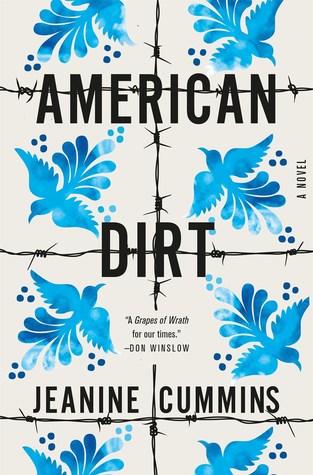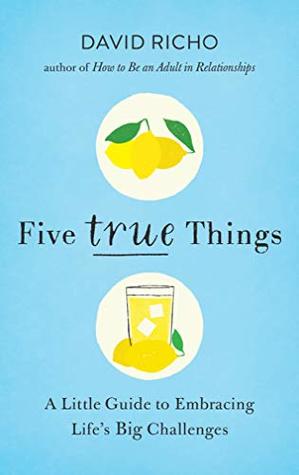The Big Baby Crime Spree and Other Delusions by Darrin Doyle is a short collection of short stories—just 90 pages long—that was sent to me by the publisher for review because I’ve reviewed Doyle’s work in the past. The five stories in this volume are odd or, rather, they’re about odd, mostly unpleasant men. (As a side note, the book in some ways reminded me of my own recent story collection, House of the Ancients and Other Stories, which is mostly about men behaving badly and the consequences thereof.) My review of this book will appear in Southern Review of Books in February or early March 2021 when it is scheduled to be published.
Oracle Night by Paul Auster is a complex study of imagination vs. reality, but I’m not quite sure what to make of it. The story is told by a novelist, Sidney Orr, some 20 years after “the day in question,” a day in September 1982 when his life hits a big speed bump. He’s been recovering from a serious illness, but on that day he is taking a walk around Brooklyn when he sees a new stationery store and stops in. He buys a blue Portuguese notebook and brings it home, promptly beginning to write in it, the first writing he’s done since his illness came on. He begins writing a story that his writer friend John—who is actually a friend of Sid’s wife’s father—suggests, based on a minor character in a Dashiell Hammett novel. Sid keeps writing and is pleased with himself (the story involves a story withing the story) but eventually hits a dead end. There’s another thread to the novel dealing with the Chinese man who sold Sid the notebook, and another about the secrets that Sid’s wife is keeping, and also about the problems John’s son is having. Very convoluted, with several threads that are left hanging, but that seems to be part of the point. From what I understand, this isn’t one of Auster’s best, but at least it’s intriguing and kept me reading.
American Dirt by Jeanine Cummins was my book club’s selection for December. It’s controversial for a couple of reasons that exacerbate one another. First, the author got a huge advance for the book and so the publisher invested a lot into making a bestseller, including getting blurbs from heavy-hitters (such as Stephen King and John Grisham). Second, the author is white but the protagonist is a Mexican woman. Critics who are upset about “cultural appropriation” also say that the author got a lot wrong (despite demonstrable research) and, they continue, the writing is awful. I’m not concerned about the primary complaints—the big advance or the so-called cultural appropriation—but I don’t like the book for other reasons. It is basically one long chase scene and we know from the beginning that the protagonist will survive or she won’t, but that the whole story is nothing more than obstacle after obstacle, with a few decent people who help her out along the way. The obstacles are pure melodrama, beginning with the “inciting incident” which is an attack on the protagonist’s family by an Acapulco drug cartel in which 16 members of her family are killed. I wish I could have stopped reading right there. But I also didn’t love the writing. Probably my biggest complaint is the overuse of Spanish mixed with the English. Many writers, myself included, throw in foreign words now and then to give a cultural flavor to the material, but there is a philosophical problem with this tactic and that is the reason it should be done sparingly. The problem is that these characters are all Spanish speakers (mostly Mexican) and it is understood that they are speaking to each other in Spanish, even though the words are rendered in English for the reader, as if their dialogue were being translated instantaneously. That being the case, why do they throw in Spanish words so often? Either we’re reading English or we’re reading Spanish.
Murmuration by Sid Balman, Jr. isn’t out yet but will be published next summer, I think. The author asked me for a blurb. Because it is something of a sequel to his first book, I read that one last month to prepare me to read this one. While the Laws and Zarkan families of Texas, who were the focus of the first book, do appear here, the main character is a Somali refugee, known as Charlie Christmas because he was born on Christmas Day and the Americans he works for can’t pronounce his real name. In fact, the early part of the book involves Charlie working as an interpreter for Ademar Zarkan, a female sniper and important character from the first book, in the rescue of two American hostages held captive by a Somali pirate and then in Mogadishu. Their team rides camels across the desert to get Charlie and his family to a refugee camp in Kenya. Two years later, the Laws and Zarkan families help extract Charlie and his son from the camp and bring them to Texas. In the second half of the book, the families help Charlie settle in Minnesota, where there is a large community of Somalis, but the son is recruited by ISIS, a similar story line to the first book in which Ademar’s brother Anil is recruited.
The Story of England by Christopher Hibbert is a condensed version of English history that I’ve had for a good long time but finally was motivated to read. Recently while doing some family-tree work I managed to follow one particular line back to John of Gaunt and King Edward III (13th Century), and decided I needed to have at least a sketchy understanding of the period and how that family came to be English royalty. [It has been pointed out to me that just about anyone with European ancestry can trace a line to royalty if you go back far enough, in this case 20 generations.] It’s also interesting to match the facts to the Shakespeare history plays, which tend to play with the truth somewhat. This book is a good overview and very readable, although the royal succession gets complicated, what with murder and all, although now I may want to dive more deeply into some periods.
Five True Things by David Richo is subtitled “A Little Guide to Embracing Life’s Big Challenges.” In many ways it is a re-packaging of some of Buddhism’s most valuable (and difficult) advice. After telling us what the Five True Things are, the rest of the book proceeds to elaborate and then to draw on many religious traditions and philosophy to apply these notions in a practical way. The Five True Things are: (1) Everything changes and ends; (2) Things do not always go according to plan; (3) Life is not always fair; (4) Pain is part of life; (5) People are not loving and loyal all the time. While it’s hard to argue with this, this sort of philosophy, as with other religions, does promote a sort of fatalism that I think is dangerous. While I wholeheartedly endorse letting go of situations and events that are not in one’s control, we have the power to shape our lives more than many people are willing to admit, in my opinion.
Turquoise Door by Lauren Camp is a collection of poems subtitled “Finding Mabel Dodge Luhan in New Mexico.” I bought this book when Camp was visiting the area and we did a joint event at an area bookstore. Unquestionably, it’s a beautiful book, with an intriguing premise. Camp was Poet-in-Residence at the Mabel Dodge Luhan House in Taos, New Mexico, and the poems originated there. One of the things that is intriguing about these poems is what I’ll call Camp’s challenging imagery. Often poets will combine words in a fresh way to create images, but my reaction usually is one of recognizing that this has occurred. That is, I understand what the poet is getting at. In reading this book, I frequently found myself puzzling over the images, which isn’t necessarily a bad thing. Sometimes I settled on a meaning and sometimes I didn’t.








